21 Jun 2024
What’s it really like being an immigrant engineer in Aotearoa and what could improve the experience?
Aotearoa’s engineering skills shortages are a perennial issue. The industry is working to fill the gap, with some companies searching offshore to attract migrant engineers. The government is doing the same, listing engineers amongst the highly skilled in-demand roles for immigration into New Zealand.
Yet migrant workers can confront barriers to living and working in Aotearoa, including housing overcrowding, scam job offers and exploitation. They also often encounter hurdles when searching for jobs, from downgraded qualifications and positions, to employers failing to recognise their overseas work experience and highlighting their lack of local experience.Hailing from Sri Lanka, Dr Rajika Jayaratne FEngNZ CPEng IntPE(NZ) arrived in Aotearoa in 2000 armed with a scholarship for a PhD in civil engineering at the University of Auckland. Soon after completing her doctorate in 2003, she was hired – but only as a graduate engineer.
“It was disheartening and felt like a step backward,” Rajika says. Yet she decided to demonstrate her ability through hard work, routinely clocking 50-to-60-hour weeks. It was a conscious strategy to prove her potential and commitment.
Throughout the following decade, Rajika brought her strong work ethic to every position, steadily building up her reputation. While some colleagues offered support, others revelled in pointing out her differences – her accent, her attire and even her cultural mannerisms.
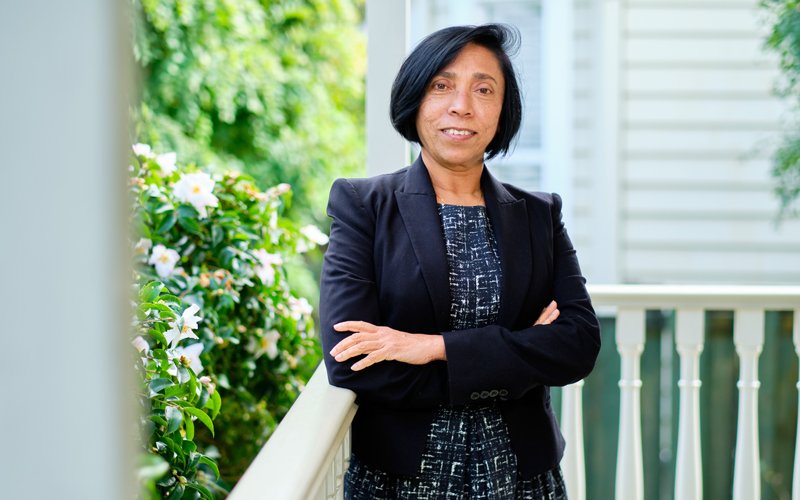
Dr Rajika Jayaratne FEngNZ CPEng IntPE(NZ). Photo: Tim Hamilton/VisionWorks Photography
But Rajika forged on. In 2012, she transitioned to consultancy, establishing her own water resources engineering consultancy firm. Breaking into the field proved difficult.
“The big players had a lock on the good clients, and everything revolved around connections, which I simply didn’t have.”
Landing her first project opened doors, and Rajika’s clients hired her for her expertise in strategic planning, hydraulic modelling, water infrastructure design and environmental problem-solving. Gradually, she carved a niche for herself in the industry.
I learned how to navigate cultural nuances and overcome biases. I learned a lot not only as an engineer but as a human being.
Just as her company was gaining momentum, the Covid-19 pandemic struck. Clients dwindled and Rajika made the tough decision to shift gears, taking a full-time position as a stormwater engineer at NZ Transport Agency Waka Kotahi (NZTA).
Rajika says she would have found it helpful if there had been a community for immigrant engineers when she was a new migrant about 25 years ago.
“We have to help each other – it’s the only way to overcome all these struggles and barriers.”
Helping immigrant engineers settle in
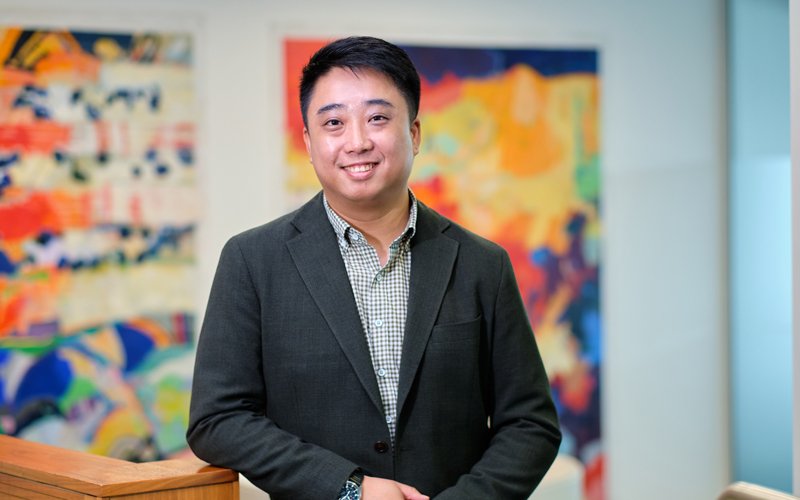
Steven Wang CMEngNZ CPEng IntPE(NZ), Chair of the Special Interest Group for Immigrant Engineers. Photo: Tim Hamilton/VisionWorks Photography
That community now exists through the Special Interest Group for Immigrant Engineers (SIGIE), a Te Ao Rangahau initiative that spun out of efforts to provide training courses for immigrant engineers. With more than 1,000 members including Life Members Zaid Essa MEngNZ and Remi Cruz CMEngNZ CPEng IntPE(NZ), it provides a networking opportunity for immigrant engineers, and offers professional development, employment and career counselling, and a range of other support, including a conference.
“We’re from all over the world, and it just goes to show that New Zealand is attractive for talent around the globe,” says Steven Wang CMEngNZ CPEng IntPE(NZ), Building Services Team Leader at GHD and Chair of SIGIE, who moved to New Zealand at a young age.
“Having been through the same experiences ourselves, we’re passionate about giving back to the community. The sooner we get immigrant engineers onto their feet, the sooner they can make contributions to New Zealand, and we all benefit from that.”
Steven encourages immigrant engineers to join SIGIE, which is free, even before they arrive in Aotearoa.
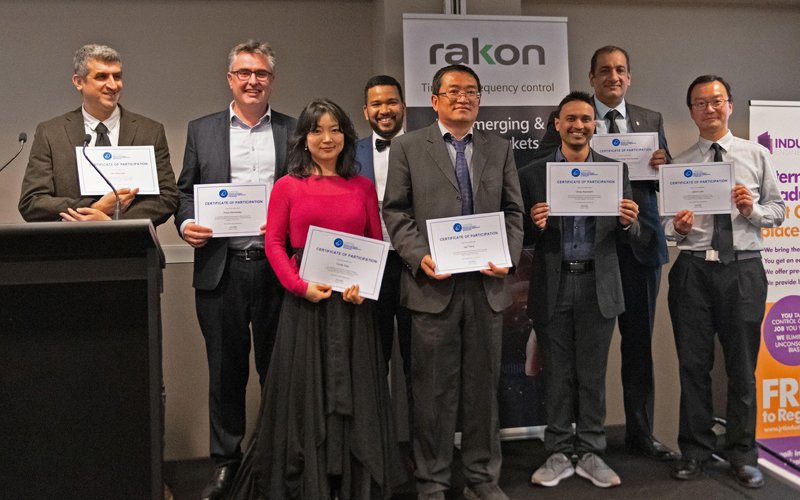
SIGIE Conference 2022 presenters. Photo: Supplied
Enhancing the immigrant experience
Both employers and other engineers in Aotearoa play a key role in helping improve the immigrant engineer experience.
“By embracing diversity, they understand the value and contributions that immigrant engineers can bring,” says Steven.
For Rajika, it’s about acknowledging and taking into account qualifications, knowledge, skills and expertise, even if these were gained abroad.
“Immigrant engineers bring a wealth of experience and expertise and it’s crucial for employers and fellow engineers to acknowledge and respect this,” Rajika says.
“We possess not only technical skills but also valuable interpersonal and teamwork abilities cultivated through our professional journeys. While our prior experiences may differ from those in New Zealand, we are quick learners and adept at adapting to new environments. Despite not having identical backgrounds, we are far from being novices in our field. Instead, we offer a diverse perspective and a rich blend of skills acquired from various contexts. By recognising and embracing the contributions of immigrant engineers, New Zealand can harness the full potential of its engineering workforce and foster a more inclusive and innovative industry."
Arno Nothnagel, Immigration Director – New Zealand at the Absolute Immigration agency, notes that having a detailed induction plan and training process in place sets the tone for employing immigrants. Providing feedback mechanisms via employee surveys and one-on-one chats can also help employers better understand staff, leading to increased retention.
Arno advises employers to supply certain helpful information before the immigrant employee arrives in the country. This means things like links to websites or guides on living in Aotearoa and the cities they’ll be staying in, as well as details about the basics of settling in, including how to get an IRD number, set up a bank account, find a rental property and access healthcare.
A buddy system also helps familiarise immigrants with New Zealand culture and how the workplace functions. “Link them up to a staff member from the same country or region, and even community groups for their country or region.” He adds that English assistance can help with language barriers and learning the nuances specific to New Zealand, such as the Kiwi accent, the speed of speaking and common slang words.
“Hiring people from other countries brings different ways of thinking and doing,” says Arno. “It brings overseas knowledge and skills that can contribute to the workplace in New Zealand and create connections.”
While Rajika compares her journey to a roller coaster ride, she still views her career path as fulfilling.
“I learned how to navigate cultural nuances and overcome biases. I learned a lot not only as an engineer but as a human being.”
When she became a Fellow of Te Ao Rangahau in 2023, Rajika considered it a huge honour.
“I feel proud as a brown woman getting to this level, and I want to do the same for the next generation of immigrant engineers, guiding them to attain the same achievements I have.”
Supporting former refugees
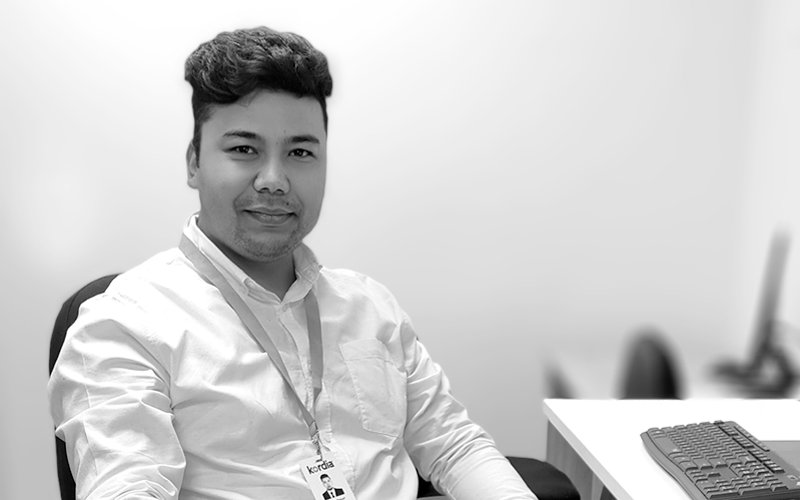
Mohammad Fahim Mazuri. Photo: Supplied
Mohammad Fahim Mazuri worked as a structural engineer and drafter in Kabul, Afghanistan, after graduating with a bachelor’s degree in civil engineering in 2016. But six years later, he arrived in Aotearoa after fleeing Afghanistan following the Taliban’s government takeover.
“It is so difficult to leave everything behind – the place you grew up in, the people you love,” Fahim says.
“But I had hope that I will find a new life and opportunities in a new environment.”
Through the New Zealand Red Cross Pathways to Employment scheme, Fahim was introduced to Alex Leo MEngNZ, Senior Associate – Civil Engineer at Beca. Alex mentored Fahim, showing him how to update his CV and write his cover letters, and coaching him during mock interviews. “He told me so much about New Zealand work culture, and it was so helpful for me. He’s a great mentor and a great person,” Fahim says.
The Pathways to Employment scheme started in 2011 as a service designed to provide specialist advice and support to former refugees and those with a refugee-like background, helping them gain sustainable and meaningful employment.
“One of the major markers of successful resettlement is employment, and for people to rebuild their lives in a new country, they need to be economically independent,” says Samantha Jones, New Zealand Red Cross Manager Migration Employment.
“Even though former refugees come with high motivation and lots of work experience offshore, it can be difficult for them to break into employment because their qualifications may not be recognised,” Samantha says.
Beca has been part of the Pathways to Employment scheme for the past seven years, with Alex at the helm.
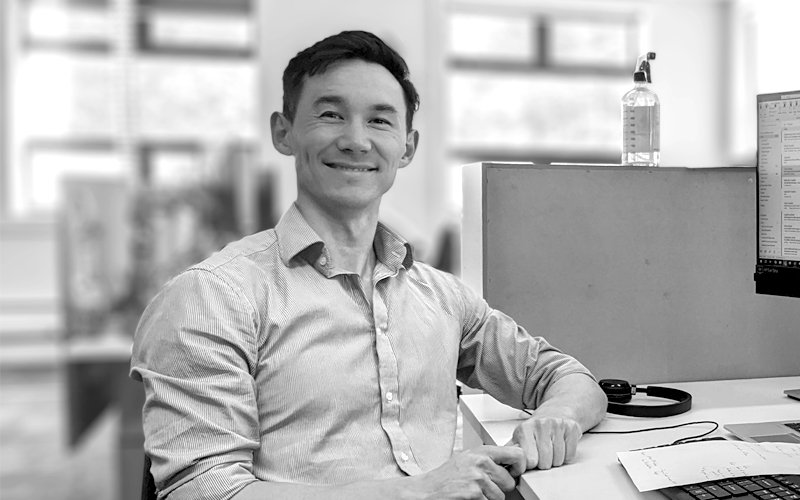
Alex Leo. Photo: Supplied
“As an employer and company, we want to contribute to our communities beyond just engineering,” he says. “And for me, it’s a way to give back. It’s rewarding to help and watch people go from being nervous to confident. There’s this myth that people who come here as refugees are a burden on the country, but they’re incredibly driven and want to contribute to the country they are part of.”
Aside from helping former refugees in the scheme through the employment process, Beca also advises young former refugees or those born in New Zealand with former refugee parents in charting a path towards engineering.
“It’s that kind of specialist insight that they can provide us and that we want to tap into,” Samantha says. New Zealand Red Cross is looking to widen its pool of partnering engineering firms.
“We can help match people with available roles – from an internship to full-time permanent employment,” says Samantha.
“We provide support to employers and help bridge the cultural gap. Employers just need a willingness to work with people from culturally diverse backgrounds.”
Fahim now works as a structural drafter at Kordia, a technology solutions provider.
“I’ve started a new life in New Zealand, and professionally, I want to become a Chartered Professional Engineer,” he says. “I also want to be a mentor just like Alex, helping my community of migrants and refugees.”
This article was first published in the June 2024 issue of EG magazine.




